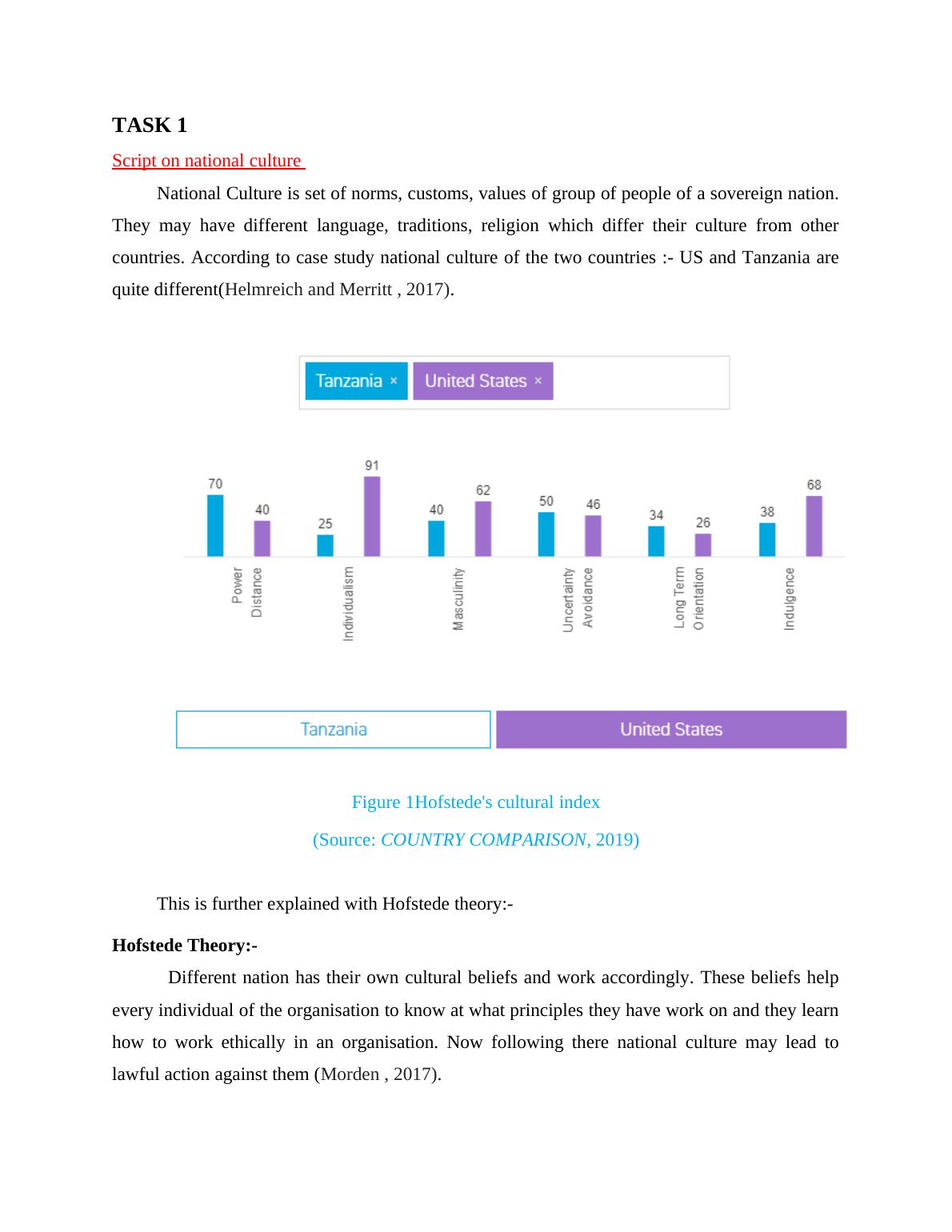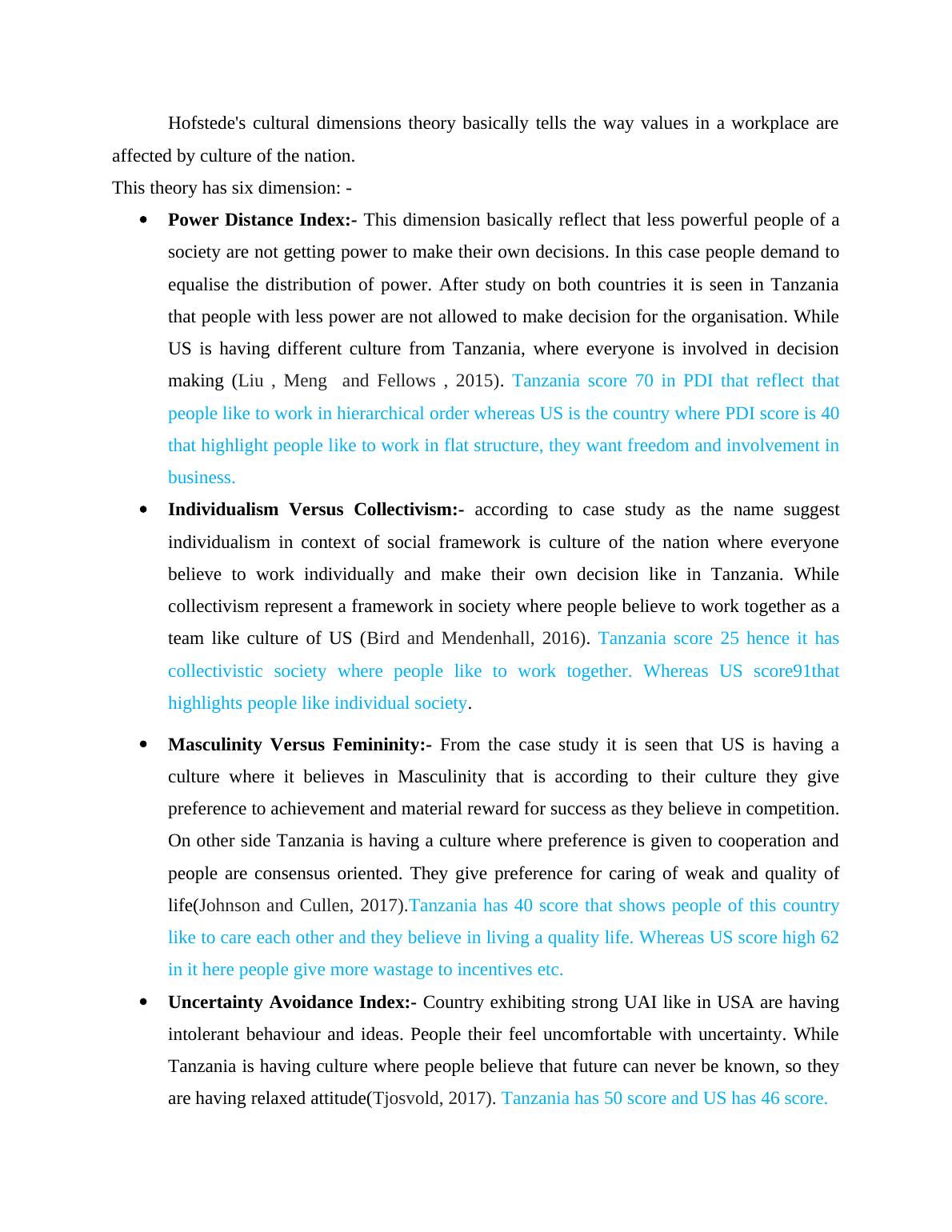A Hofstede's Cultural Index for the US and Tanzania
5 Pages1367 Words116 Views
Added on 2021-02-21
About This Document
According to case study national culture of the two countries :- US and Tanzania are quite different(Helmreich and Merritt , 2017). This is further explained with Hofstede theory:- Hofstede Theory:- Different nation has their own cultural beliefs and work accordingly. Tanzania score 70 in PDI that reflect that people like to work in hierarchical order whereas US is the country where PDI score is 40 that highlight people like to work in flat structure, they want freedom and involvement in business.
A Hofstede's Cultural Index for the US and Tanzania
Added on 2021-02-21
ShareRelated Documents
End of preview
Want to access all the pages? Upload your documents or become a member.
Business Across Culture: Critical Assessment of Hofstede Model and Impact of Cultural Diversity on Cross Border Business
|21
|5601
|189
International Marketing and Communications Management
|16
|3051
|33
Management in Global Business Environment
|5
|985
|227
International management assignment
|8
|2187
|62
Managing Across Borders Assignment
|10
|1560
|71
Managing Across Borders: Cultural Profile and Hofstede's Cultural Dimensions
|11
|1757
|417


